Chris Christie’s Dual Political Personalities
It's rare that you can look at your television screen and see not only what is happening but also what might have been.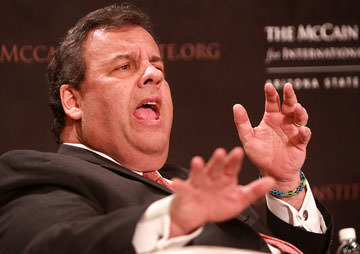 Gage Skidmore (CC-BY-SA)
Gage Skidmore (CC-BY-SA)
It’s rare that you can look at your television screen and see not only what is happening but also what might have been. Chris Christie’s inaugural address on Tuesday was at once a masterful summary of the best thinking among Republicans about where their party needs to move and a compendium of proclamations that now carry unfortunate double-meanings.
The New Jersey governor gave the speech he would have given had there been no George Washington Bridge scandal and no allegations about the use of Hurricane Sandy relief money to pressure a local official on a development project.
You can’t blame him for sticking to the old script. He now has to live his public life on two levels. And Christie’s speech made an important contribution: The tough former prosecutor denounced our dysfunctional, counterproductive approach to the drug problem.
“We will end the failed war on drugs that believes that incarceration is the cure of every ill caused by drug abuse,” Christie declared. “We will make drug treatment available to as many of our nonviolent offenders as we can, and we will partner with our citizens to create a society that understands this simple truth — every life has value and no life is disposable.”
Forget the scandals for a moment: Christie here is speaking for an expanding consensus that (forgive me) bridges left and right, liberals and libertarians, about the foolishness of filling our prisons with those who are the victims of their own crimes. Pushing this cause along could be Christie’s good deed.
But like everything else in the speech, this passage also had a political purpose. Offering a dash of libertarianism, which appeals to a key subset of the Republican primary electorate, with a soupcon of compassion is just what the consultant gods would order up. And that’s the sort of balance Christie struck throughout.
For the tea party ideologues, Christie dutifully mocked “the power of almighty government to fix any problem, real or imagined.” He fired a shot across the Hudson River, aimed perhaps at Bill de Blasio, New York City’s populist mayor. “Let’s be different than our neighbors,” he said. “Let’s put more money in the pockets of our middle class by not taking it out of their pockets in the first place.”
And even Rand Paul couldn’t do better than this: “I do not believe that New Jerseyans want a bigger, more expensive government that penalizes success and then gives the pittance left to a few in the name of income equity. What New Jerseyans want is an unfettered opportunity to succeed in the way that they define success.”
But the ideology came draped in the finery of anti-partisan, anti-gridlock fashion, finished off with a flourish to a resurgent, caring brand of conservatism.
“We have to be willing to play outside the red and blue boxes that the media pundits put us in,” said the man who may be demonizing the media in the coming months. “We have to be willing to reach out to others who look or speak differently than us; we have to be willing to personally reach out a helping hand to a neighbor or a friend suffering from drug addiction, depression or the dignity-stripping loss of a job.”
On a normal day, the once pro-Christie media would have gone into a swoon. But there’s a new normal for the man who once led the GOP presidential polls. Suddenly, anodyne pronouncements sounded strange.
When he said that “each vote cast is an act of faith and trust,” Christie reminded everyone that a breach of trust is precisely why he’s in trouble. When he praised his state for having “put aside political partisanship,” his listeners remembered that hardball is his calling card. When he criticized an “attitude that says I am always right and you are always wrong,” you wondered if he was describing what The New York Times called his “swagger and unapologetic belligerence.”
For there was other news on this inauguration day, including a Pew poll finding that 58 percent of those who’ve heard about the bridge story — including an astonishing 42 percent of Republicans — don’t believe Christie’s account. Ken Cuccinelli, the GOP’s defeated 2013 candidate for governor of Virginia, said that Christie should step down as chairman of the Republican Governors Association. And New Jersey’s legislators consolidated their investigation of him into one Senate-Assembly supercommittee.
Aside from all this, Christie had a great day. But for now, “all this” is what defines him.
E.J. Dionne’s e-mail address is ejdionne(at)washpost.com.
© 2014, Washington Post Writers Group
Your support matters…Independent journalism is under threat and overshadowed by heavily funded mainstream media.
You can help level the playing field. Become a member.
Your tax-deductible contribution keeps us digging beneath the headlines to give you thought-provoking, investigative reporting and analysis that unearths what's really happening- without compromise.
Give today to support our courageous, independent journalists.
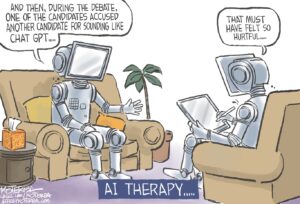
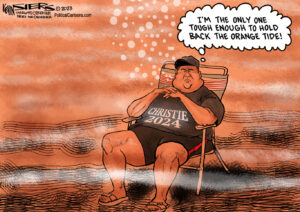
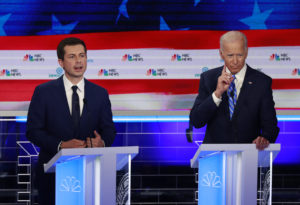
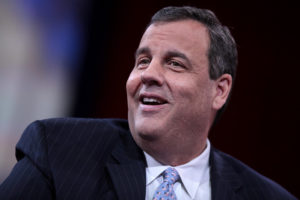

You need to be a supporter to comment.
There are currently no responses to this article.
Be the first to respond.